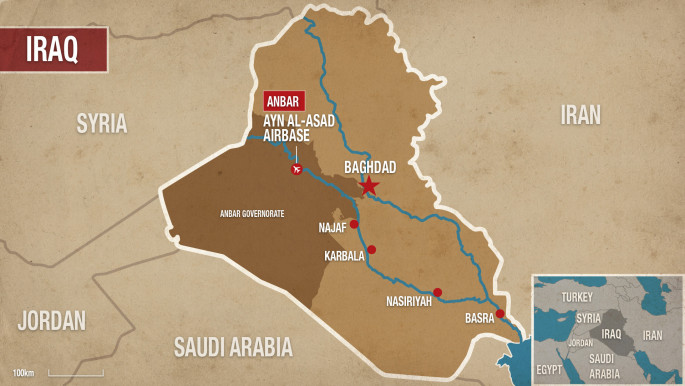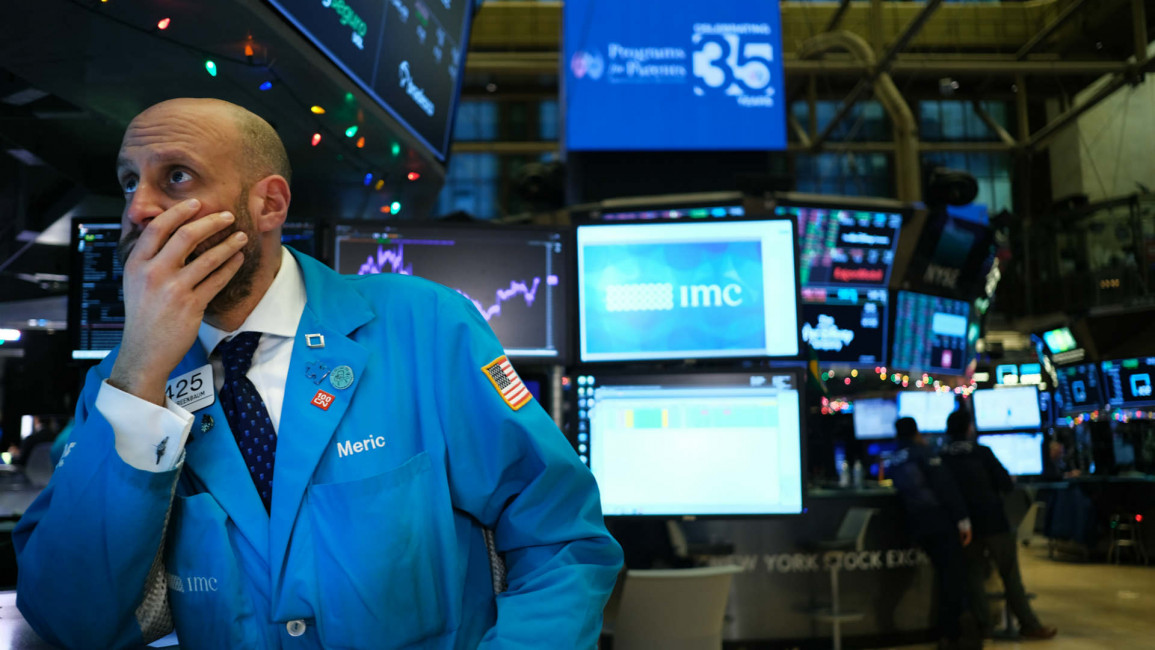Oil surges, stock market plunges following Iran strikes on US targets in Iraq
The strikes, launched in retaliation for President Donald Trump ordering the assassination of the Islamic republic's top general last Friday, sent Brent and New York crude to multi-month peaks.
Oil later trimmed gains as Iran said it had "concluded" for now its missile attacks, launched in response to the US drone assassination of Qasem Soleimani last Friday. The unrest has yet to impact oil supplies, analysts said.
"Although the market was duly warned about upcoming Iranian retaliation attacks on US installations and armed forces the (Brent) oil price still spiked up to almost $72 per barrel following the Iranian attacks on two US Iraqi bases last night," said SEB analyst Bjarne Schieldrop.
In-depth: After Soleimani's assassination, Iran's behaviour will determine the global oil price game
"Again, not a single drop of oil supply has been lost due to the recent incidents and this is why the oil price has fallen back down again so quickly. What the market fears is that the situation spirals out of control, with an uncontrollable escalation leading to outright war."
Global stock markets however tumbled as investors feared the escalation into a broader conflict.
In late Wednesday morning deals, London stocks were down 0.2 percent, Frankfurt fell 0.4 percent and Paris retreated 0.3 percent after heady losses in Asia.
Twitter Post
|
"Global markets have been shaken after Iran launched a ... missile attack against multiple US military bases in Iraq," said analyst Bethel Loh at trading firm ThinkMarkets.
"Fears of escalation, however, were proven to be short-lived as the US administration avoided an impulsive military response in the aftermath."
Tehran said it had halted its missile strikes, with Foreign Minister Mohammad Javad Zarif tweeting that the country does "not seek escalation or war".
The Pentagon said it was still "working on initial battle damage assessments" after bases at Ain al-Asad and Erbil in Iraq - which house US and coalition forces - were targeted by more than a dozen ballistic missiles.
There were no immediate reports on casualties. Trump said the assessment was underway, but added on Twitter: "So far, so good".
Further geopolitical instability came after a Ukrainian Boeing 737 crashed shortly after taking off from Tehran airport, killing at least 170 people.
Safe haven assets also rose Wednesday as investors dumped stocks and headed to the hills.
Gold was up more than two percent, surging above $1,600 an ounce for the first time in six years, before falling back slightly to stand at $1,581.80.



